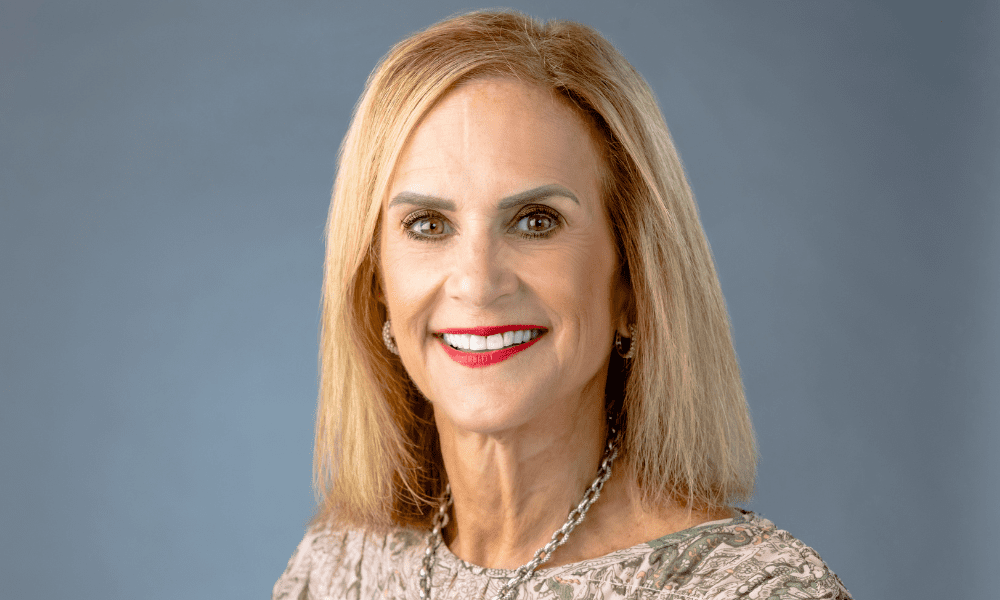CLM’s CEO on whether the insurance industry has diversified its leadership

CLM’s CEO on whether the insurance industry has diversified its leadership | Insurance Business America
Insurance News
CLM’s CEO on whether the insurance industry has diversified its leadership
Don’t think the job is done just yet…
Insurance News
By
David Saric
Back when Ronna Ruppelt (pictured), the CEO of Claims and Litigation Management Alliance (CLM), first entered the insurance industry in the 1980s, she experienced a disheartening dearth of female representation in C-suite level positions.
However, as time has progressed and workplace inequities have come under laser focus, Ruppelt has noticed some positive trends in many companies’ employment rosters.
“The industry has made tremendous strides, and frankly, how can it not when 66% of your entering workforce is women. It’s going to happen, and we want to help support that,” she said.
“It’s a whole different world than when I first started my career.”
However, while women are ascending in the workforce in numbers, there is still a dearth of women and other underrepresented groups holding leadership positions in the industry.
A 2022 report from McKinsey that surveyed the state of women in corporate America found that only one in four C-suite leaders is a woman, and only one in 20 is a woman of color.
“Continued commitment by executive leadership to diverse hiring is critically important, and we’ve got to make sure we’re sourcing the right places or setting the right expectations for that,” Ruppelt said.
“Also, we need to make sure that we are creating a culture where people feel valued and appreciated, because I can tell you that back in the day I was subjected to situations where that did not happen.”
The CEO admitted that raising awareness about this topic will always be the crucial first step in any effort to see meaningful change, as well as putting on and participating in female-focused networking events.
“At the end of the day, the insurance industry touches all aspects of society,” she said.
“And I think it’s really important that the industry reflects that in its workforce. To understand and appreciate what society offers, you need to have the people within the industry who impart that personal knowledge, understanding, reflection, passion and interest.”
In advance of appearing as a panellist at this year’s Women in Insurance Atlanta conference, Ruppelt spoke about how the insurance industry should tackle leadership and empowerment initiatives and why reverse mentorship is important.
Leadership skills building need to be holistic
For women to take on leadership roles in the insurance industry, empowerment and skills building needs to be actionable.
“Empowerment in a vacuum or developing skill sets in a vacuum doesn’t really go anywhere. We have to provide those opportunities so that those skill sets that people are learning are actually used in practice,” Ruppelt said.
“With 50% of the current workforce being baby boomers, and many will be retiring within the next seven–to–10 years, we need to make sure that the future leaders in the industry have the necessary skills to lead an organization.”
The most important way to foster growth is by creating a supportive environment that stresses the importance of mentorship and sponsorship opportunities.
“Building relationships this way is really important,” Ruppelt said.
“It provides visibility and recognition, as well as both personal and professional branding.”
This is why events like Women in Insurance Atlanta are extremely important according to Ruppelt, especially for people in her position that have a wealth of experiential knowledge to share.
“I find it really important to share my learnings with those that are coming up through the ranks, whether they are early career or in the middle,” the CEO said.
“Continuous learning should never stop as long as the person remains in the workforce,” she said.
This is especially true as a newer demographic enters the workforce with new ideas and opinions that can better the structure of a company or organization.
“Reverse mentoring is really important because you can learn a lot from people that come to you with a different perspective,” Ruppelt said.
“Just because you’ve been doing something for a long time, that doesn’t mean you necessarily have the better idea. Great ideas can come from anyone, and we all need to be open to that.”
Related Stories
Keep up with the latest news and events
Join our mailing list, it’s free!







